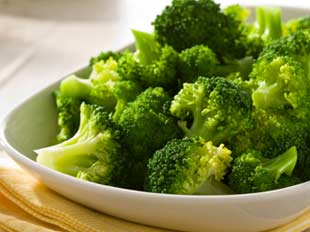The Raw Truth
 The premise behind the raw food diet rests on the notion that living cells require living nutrients (such as uncooked vegetables, fruits, grains, and nuts) as opposed to foods that have been heated — which can zap nutrition and enzyme power.
The premise behind the raw food diet rests on the notion that living cells require living nutrients (such as uncooked vegetables, fruits, grains, and nuts) as opposed to foods that have been heated — which can zap nutrition and enzyme power.
Raw foods can detoxify your body, balance pH and sugar levels, and aid digestion. Their undisturbed vitamins and antioxidants may protect against heart disease, cancer, and many degenerative diseases.
However, eating purely raw (or at least 75%, as raw-food advocates suggest) isn’t for everyone. Pregnant and breastfeeding women, children, and individuals with anemia or bone disease may experience nutrition deficiencies. And not all evidence says cooking is always harmful. One study found that steaming broccoli actually activates its glucosinolates — cancer-fighting phytochemicals. Cooking also unlocks the lycopene compounds in tomatoes and vital nutrients in corn.
What to do? Incorporate a healthy amount of raw vegetables and fruits into your diet, but don’t be afraid to heat them up if a recipe calls for it. Try these ideas:
Fill lettuce wraps with black beans, corn, and avocado chunks: top with salsa
Blend apples and carrots for a healthy juice, or try pineapple, black grapes, and strawberries for a tropical zing
Toss steamed broccoli, artichoke hearts, red bell peppers, olive oil, and fresh garlic into whole grain pasta noodles.

